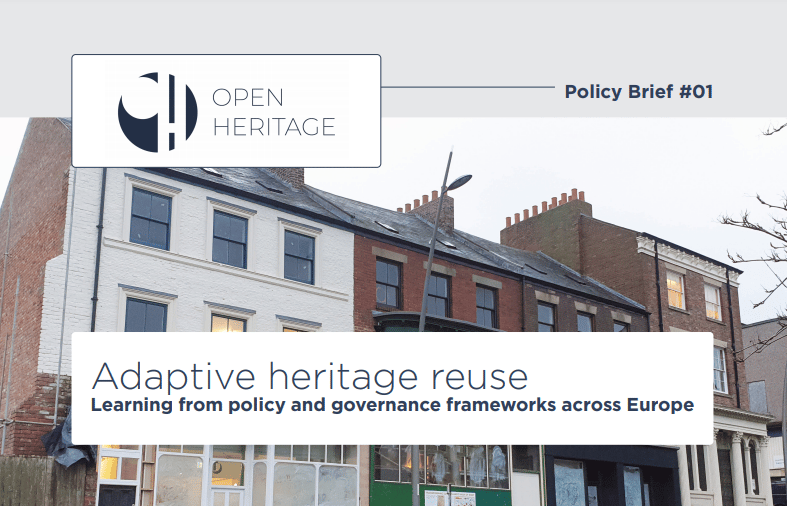In its first policy brief, OpenHeritage presents recommendations for policy makers, heritage officers, and planners, at national and sub-national levels of government. These recommendations aim to support the implementation of adaptive heritage reuse projects in Europe.
“Adaptive heritage reuse is becoming more and more common as a way to care for heritage assets, and a sustainable way of recycling their material aspects, whilst also engaging with their immaterial, narrative, and emotive qualities. Our analysis of heritage and planning systems across Europe, identifies how adaptive heritage reuse projects can be facilitated or frustrated by regulatory systems. We have also identified relevant policies and tools that support adaptive heritage reuse. We hope to inspire change in favour of adaptive heritage reuse and help develop more sustainable governance models for heritage reuse in Europe.”
The OpenHeritage project
OpenHeritage is developing inclusive governance and management models for overlooked heritage sites using its six Living Labs and its study of good practices of adaptive heritage reuse implemented across Europe (Observatory Cases). Working together with residents, local businesses, higher education organisations, and municipalities, OpenHeritage explores diverse partnership arrangements,
community engagement methods and finance mechanisms to help develop and sustain engaged communities around heritage sites. In the Labs, the project further explores how community empowerment could be realised in the processes of adaptive reuse, whether that is through policy change, local activities (both online and offline), increased attention from civic actors, or all of the above.
Download and read the first policy brief here.
For more news from OpenHeritage, click here. Or click on one of the tags below.

